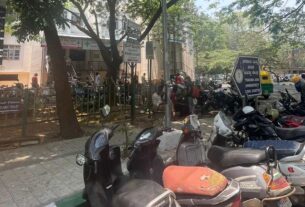Officials claim drunken drive cases registered in Bangalore decreased due to elections of May 2018
Bengaluru, Sept. 04, 2018 : Statistics reveal that the first half of 2018 saw a fall in the number of drunken drive cases registered in Bangalore, when compared to the first half of 2017, indicating a decrease in related incidents, according to the reports of the Traffic Management Centre.
The reports show that 31,816 drunken drive cases were registered from January to July 2017 in Bangalore city, while only 25,978 cases were counted between January and July 2018. The number of deaths caused due to drunken driving has also gone down, from 641 in 2017 to 396 in 2018, according to the reports of the Bangalore Traffic Police.
One of the reasons behind reduction in the number of cases registered was the elections that were held in May 2018. The police officers who would normally monitor traffic activity had to take care of election duties, resulting in a lack of officers on the roads to watch out for rule-breakers and drunk drivers, officers from the Traffic Management Centre said.
A higher official from the Traffic Planning Department said, “The reduction in the number of cases was also because a lot of people are becoming more aware of the severe consequences for driving after alcohol consumption.”
A lot of workshops and rehabilitation programmes for drunk drivers who were caught are conducted in Bangalore city by various officials, including ACPs (Assistant Commissioners of Police) and officers from different Sub-Divisions, at different venues.
On June 30, a programme named “Workshop for Prevention of Drunken Driving” was conducted at the Traffic Management Centre.
Dr. Ashish Verma, associate professor at the Department of Civil Engineering, IISc said that, while the fall in the number of drunken drive cases registered is reassuring, it might not necessarily indicate a decrease in traffic crime.
He stated that a whole year’s data would be required to make any solid conclusions based on comparison of specific years’ information.
Dr. Verma stressed the importance of enforcing strict laws to control traffic crime. He pointed out the penalties carried out in countries like Bulgaria, Denmark, the United Kingdom, and Germany for traffic crime. Measures like credit points system for licenses and amending traffic laws to make them stricter were some of the ideas implemented.
According to the website of the Indian Medical Association, the conditions classifying a person as “drunk” also differs in numerous countries.
In India, if there is more than 30mg of alcohol per 100ml of blood in a person’s body, it indicates that the person is drunk, as per medical terms. In some foreign countries though, 35mg of alcohol is raised to 80mg per 100ml of blood.
A bill was passed in India to amend the Motor Vehicles Act of 1988 to improve the terms of the original law, but the bill has not yet been approved by the Supreme Court to become an Act.
Dr. Verma stated that the contents of the bill has increased fines for different traffic crimes like drunken driving, driving without helmet/seatbelt, driving without license, and over speeding.
Dr. Verma suggested that different levels of severity in punishment should have a better impact in the reduction of traffic crimes such as drunken drive.
Officials from the Traffic Planning Department said that numerous workshops and programs are held throughout Bangalore once a month to create awareness amongst public about the hazards of drunken driving.






You did a great work here!
Thank you.